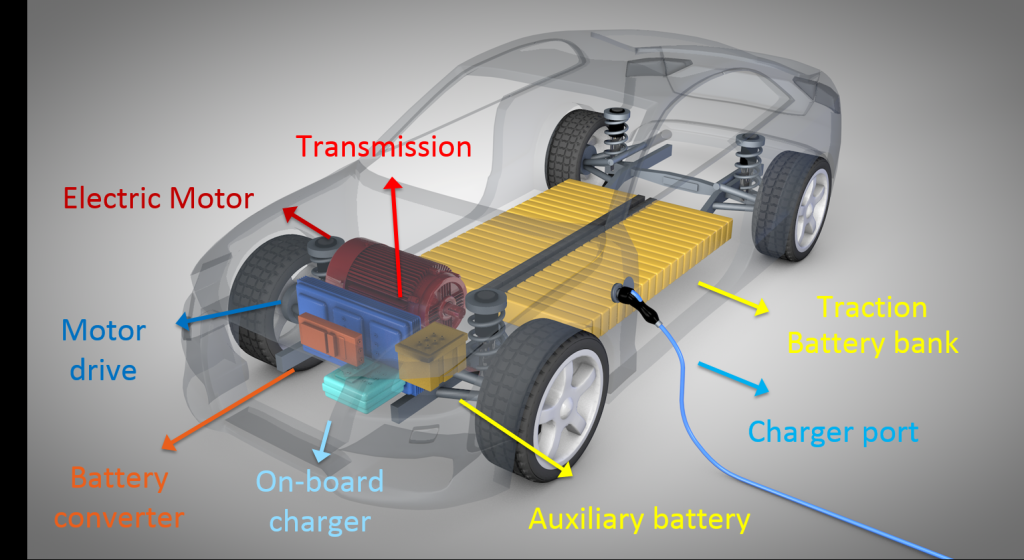Unlocking The Power Of Electric Vehicle Technology: Your Comprehensive Guide To Electric Vehicle Technology Notes
Electric Vehicle Technology Notes: A Revolution on Wheels
Imagine a world where the hum of engines is replaced by the whisper of electric motors, where exhaust fumes are replaced by clean, emissions-free air, and where the reliance on fossil fuels is a thing of the past. This is the world of electric vehicles, a rapidly growing technology that is set to revolutionize the way we travel. In this article, I will delve into the fascinating world of electric vehicle technology notes, exploring their history, benefits, and potential impact on the environment.
What is Electric Vehicle Technology?
Electric vehicle technology refers to the development of vehicles that are powered by electricity instead of traditional internal combustion engines. These vehicles utilize electric motors and rechargeable battery packs to propel themselves, eliminating the need for gasoline or diesel fuel. Electric vehicles come in various forms, including all-electric cars, hybrid vehicles, and electric scooters.
2 Picture Gallery: Unlocking The Power Of Electric Vehicle Technology: Your Comprehensive Guide To Electric Vehicle Technology Notes


Who Invented Electric Vehicles?
The concept of electric vehicles dates back to the 19th century, with inventors such as Thomas Davenport and Robert Anderson pioneering the development of electric motors. However, it was Thomas Edison who made significant advancements in battery technology, making electric vehicles more practical. In recent years, companies like Tesla, Nissan, and Chevrolet have played a crucial role in popularizing electric vehicles and making them more accessible to the general public.
When Did Electric Vehicles Gain Popularity?

Image Source: cloudfront.net
Electric vehicles first gained popularity in the late 19th and early 20th centuries, with electric cars being favored by wealthy individuals for their quiet operation and lack of emissions. However, the advent of cheap gasoline and the development of the internal combustion engine led to a decline in electric vehicle usage. It wasn’t until the 21st century, with concerns about climate change and the depletion of fossil fuels, that electric vehicles began to regain popularity.
Where Can Electric Vehicles Be Used?
Electric vehicles can be used in a wide range of environments, including urban areas, suburban neighborhoods, and rural settings. They are particularly well-suited for city driving, as they produce zero emissions and can help reduce air pollution in densely populated areas. With the availability of charging infrastructure, electric vehicles can be used for long-distance travel as well.
Why Choose Electric Vehicles?
There are several compelling reasons to choose electric vehicles over traditional gasoline-powered cars. Firstly, electric vehicles are environmentally friendly, producing zero tailpipe emissions and significantly reducing greenhouse gas emissions. They also offer lower operating costs, as electricity is generally cheaper than gasoline. Additionally, electric vehicles provide a smoother and quieter ride, with instant torque and fewer moving parts, resulting in reduced maintenance requirements.
How Do Electric Vehicles Work?

Image Source: tudelft.nl
Electric vehicles work by storing electrical energy in rechargeable battery packs, which power electric motors to propel the vehicle. When the battery is depleted, it can be recharged by plugging the vehicle into a charging station or using a home charging unit. Some electric vehicles also feature regenerative braking, which converts kinetic energy into electrical energy, further extending the vehicle’s range.
Frequently Asked Questions (FAQs)
1. How far can electric vehicles travel on a single charge?
Range varies depending on the vehicle model and battery capacity. Some electric cars can travel over 300 miles on a single charge, while others have a shorter range of around 100 miles. It’s important to consider your daily driving needs and access to charging infrastructure when choosing an electric vehicle.
2. How long does it take to charge an electric vehicle?
Charging times vary depending on the charging method and the vehicle’s battery capacity. Level 1 charging, using a standard household outlet, can take several hours or overnight. Level 2 charging, using a dedicated charging station, can charge the vehicle in 4-8 hours. Fast charging, available at select charging stations, can provide an 80% charge in as little as 30 minutes.
3. Are electric vehicles more expensive than traditional cars?
While the upfront cost of electric vehicles is generally higher than their gasoline-powered counterparts, they can offer long-term savings in terms of fuel and maintenance costs. Additionally, government incentives and tax credits are often available to offset the initial cost of purchasing an electric vehicle.
The Pros and Cons of Electric Vehicles
Pros:
Zero tailpipe emissions, reducing air pollution and greenhouse gas emissions
Lower operating costs compared to gasoline-powered cars
Smooth and quiet ride with instant torque
Reduced maintenance requirements
Potential for renewable energy integration and energy independence
Cons:
Limited charging infrastructure, particularly in rural areas
Longer refueling time compared to gasoline-powered cars
Range anxiety for electric vehicles with shorter ranges
Higher upfront cost
Environmental impact of battery production and disposal
Conclusion: A Greener Future on the Horizon
Electric vehicle technology has heralded a new era of sustainable transportation, offering a cleaner and more efficient alternative to traditional gasoline-powered cars. With advancements in battery technology and the growing availability of charging infrastructure, electric vehicles are becoming an increasingly viable option for consumers worldwide. While there are still challenges to overcome, such as expanding charging networks and reducing battery costs, the future looks promising for electric vehicles. So, why not join the electric revolution and experience the thrill of driving cleaner and greener?
This post topic: Electric Car Technology

